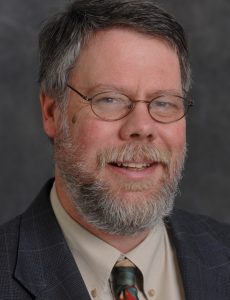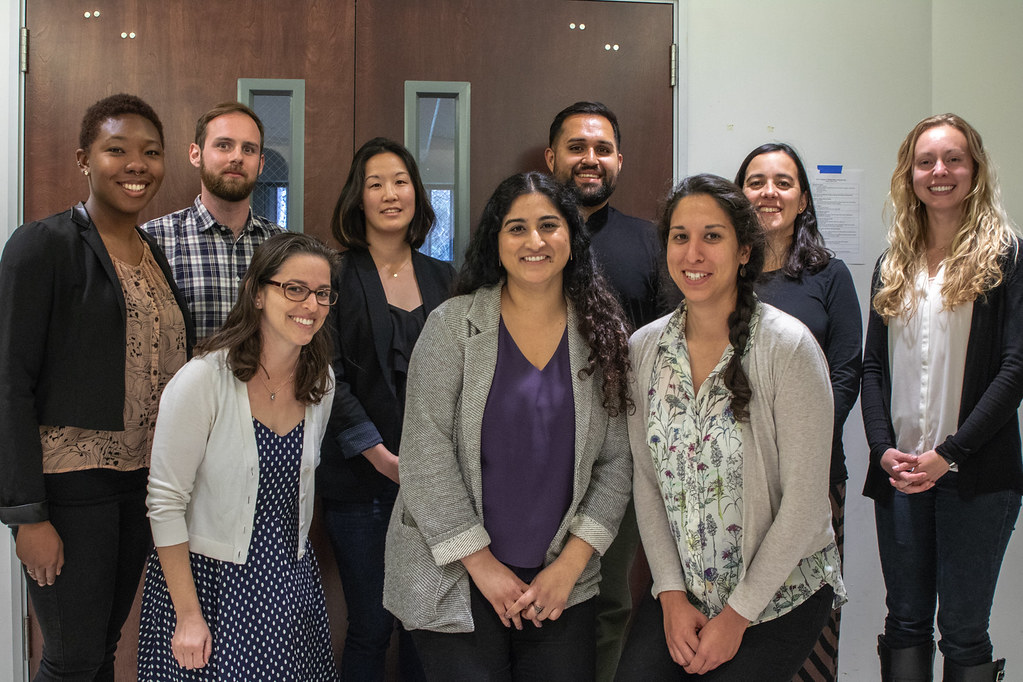By Zev Hurwitz
Mitchell Katz, a UCLA Luskin Senior Fellow, knows of several projects that would demonstrate the potential for effectiveness of local government.
“When people talk about public policy, typically people think about Washington [D.C.] or they think about state government,” said Katz, MD, director of the Los Angeles County Health Agency during a talk May 9, 2017, at the UCLA Faculty Center. “I have to say I’ve never been interested in working in either because I like seeing problems directly and figuring out how to solve them. What I want you to think about is, ‘What are the opportunities to do interesting things at a local level that perhaps you could never do at a federal level?’”
More than 50 attendees also heard from Director of the Los Angeles Initiative and former L.A. County Supervisor Zev Yaroslavsky, who moderated a Q&A that followed Katz’s discussion of experiences that employ creativity to improve public health.
For example, when HIV/AIDS was spreading in San Francisco more than two decades ago, Katz helped create a needle exchange program that drastically lowered the number of new infections. In order to bypass state laws prohibiting taxpayer-funded needle exchanges, Katz and his colleagues needed to be creative in finding a legal loophole.
“We came up with the idea that we would declare an emergency,” he said. “The idea was that this was the leading cause of death among men … and here was something that was a transmissible agent. It seemed to me that this cause of death was a public health emergency.”
Katz likened the response to AIDS during the epidemic to an earthquake, during which normal county bureaucratic channels would be bypassed in providing emergency services.
“You were on the County Board of Supervisors for many years,” he said to Yaroslavsky. “If there’s a huge earthquake, you don’t want Zev and his colleagues to follow the process of getting request for proposals and figuring out who’s going to clean up your street — you want everybody to waive all the rules.”
Because rules for emergencies are time-sensitive, keeping the needle exchange program alive meant renewing the emergency order every two weeks for the next nine years.
“This gives you some sense about how absurd it was,” he said of navigating the bureaucracy.
Needle exchanges finally became legal in 2011, yet today no federal funding can be used to pay for such programs.
Katz also spoke about his work banning tobacco sales in pharmacies, improving public housing for homeless and chronically ill patients, advancing teleretinal screenings and remote doctor’s appointments to reduce waiting time for specialist appointments.
During the Q&A, he and Yaroslavsky engaged in a conversation about the future of health in Los Angeles and the country.
Yaroslavsky had high praise for Katz. “One of the best decisions the Board [of Supervisors] made in my day was getting Mitch Katz to come to Los Angeles even though he was from San Francisco,” he said.
Associate Dean and Urban Planning Professor Anastasia Loukaitou-Sideris opened the event, which was co-sponsored by the Fielding School of Public Health, and she introduced Katz. She also discussed the Luskin Senior Fellows program, which pairs leaders in the public, private and nonprofit sectors with graduate students at the UCLA Luskin School of Public Affairs for mentorship and engagement on field-specific issues.
VC Powe, director of career services and leadership development at Luskin, oversees the program, which is now in its 20th year. She noted that the fellowship program’s speaker series allows the Luskin community to hear directly from community leaders.
“The Senior Fellows Speaker Series was created to provide a public square in which these prominent community and policy leaders can discuss their roles in public service and provide insights to their efforts to solve pressing public and social policy challenges,” she said.
 A research article published in the Journal of Health Politics, Policy and Law by Mark A. Peterson, professor of public policy, political science and law, compares the “political vulnerability and resiliency” of the Affordable Care Act (ACA) with the repeal of the Medicare Catastrophic Coverage Act (MCAA) nearly three decades before. “The political-institutional contexts and the processes of coalition change could hardly have been more different for MCCA and ACA,” notes Peterson in his article, “Reversing Course on Obamacare: Why Not Another Medicare Catastrophic?” in the Duke University Press publication. “However, they had some shared vulnerabilities stemming from program design,” he argues. “The ACA survived the political weakness inherent in its policy attributes due to its particular balance and timing of benefits and costs and by being shielded long enough by election results and the constitutional separation of powers to have its benefits take root.” — Stan Paul
A research article published in the Journal of Health Politics, Policy and Law by Mark A. Peterson, professor of public policy, political science and law, compares the “political vulnerability and resiliency” of the Affordable Care Act (ACA) with the repeal of the Medicare Catastrophic Coverage Act (MCAA) nearly three decades before. “The political-institutional contexts and the processes of coalition change could hardly have been more different for MCCA and ACA,” notes Peterson in his article, “Reversing Course on Obamacare: Why Not Another Medicare Catastrophic?” in the Duke University Press publication. “However, they had some shared vulnerabilities stemming from program design,” he argues. “The ACA survived the political weakness inherent in its policy attributes due to its particular balance and timing of benefits and costs and by being shielded long enough by election results and the constitutional separation of powers to have its benefits take root.” — Stan Paul










